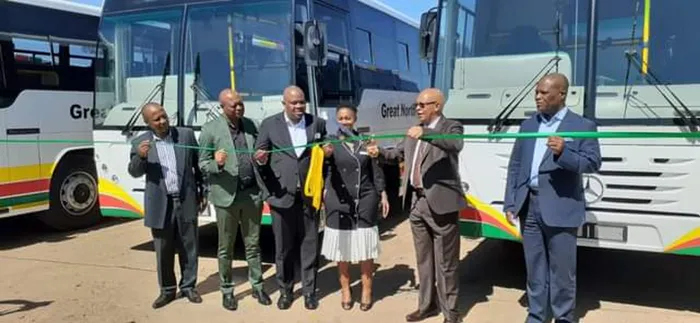Installation of free wi-fi a risk for Limpopo bus business

THE installation of free wi-fi in the Great North Transport buses is expected to further worsen the company’s financial situation. Picture: Supplied
THE installation of free wi-fi in the Great North Transport (GNT) buses is expected to further worsen the company’s financial situation.
This after the DA said it would write to the chairperson of the portfolio committee on Limpopo economic development, environment and tourism (LEDET) to summon the GNT chief executive, Dr Matat Mokoele.
The party said Mokoele should provide details on the rationale to award a contract for the installation of wi-fi on the government-owned buses.
This was after GNT announced on social media that it had started to roll out the installation of free wi-fi on buses in the Vhembe region.
The DA’s provincial spokesperson on LEDET, Risham Maharaj, said the installation would jeopardise the profitability of the company.
“The DA will write to the chairperson of the portfolio committee on Limpopo economic development, environment and tourism (LEDET), Mapula Mokaba-Phuwana, to summon the CEO of Great North Transport, Dr Matate Mokoele, to provide details on the rationale to award a contract for the installation of wi-fi on their buses,” Maharaj said.
Maharaj said it was concerning that GNT was prioritising non-essential supplementary services to their commuters at the expense of critical operational requirements.
“GNT has not been financially viable for eight years and recent oversight at their eight bus depots by the DA confirmed that the turnaround strategy has left depots under-resourced and understaffed to provide logistical and mechanical support to the dwindling fleet,” Maharaj said.
He said current challenges that GNT faces include:
- The failure to meet its contractual obligations to provide a sufficient fleet of buses by the fourth quarter of the 2022/23 financial year;
- Unreliable scheduled pick-up times which leave commuters in the lurch;
- Lack of roadworthiness of GNT buses and persistent challenges at GNT bus depots.
Maharaj said the funds utilised for the installation and maintenance of the wi-fi project could have been used to improve the operations of GNT and to service the buses.
“Lack of information on the tender process, contract amount and time frames are indicative of yet another asinine plan to enrich cadres at the expense of a dependable public transport network.”
The cash-strapped entity also left more than 800 employees high and dry after R300 million of their pension fund vanished. This after GNT failed to pay their contributions to the pension fund administrators for 17 years despite making monthly deductions from salaries.
GNT is a subsidiary of LEDET and is overseen by one of its entities, the Limpopo Economic Development Agency (LEDA).
LEDET spokesperson Simon Matume did not respond.
GNT spokesperson Patrick Monkoe referred questions to LEDA’s spokesperson, Mthunzi Dlamini, who said the bus company was undergoing a transformation process and had developed a dedicated turnaround strategic process that would turn the entity’s fortunes around.
Dlamini said the bus company implemented its adopted turnaround plan in line with its public transport mandate.
“The strategy involves, among other things, the acquisition of additional buses for all routes, changes to business processes and advertising space on the buses for additional revenue generation.
“This is a business marketing effort to turn the company into a profitable, sustainable and reliable public transport entity,” Dlamini said.
He said the free wi-fi installation on the buses was part of the plan to change the fortunes of GNT and support passengers who may want to use the free internet services while on board.
“A reputable and experienced service provider was appointed following a competitive bidding process to solicit and procure advertisers for available advertising space on the buses. Therefore, the free wi-fi service on the buses is a marketing strategy to attract and increase the number of passengers on the buses as well as attract interest from advertisers.
“The free wi-fi system will assist our passengers with access to connectivity and connect with their relatives including studying, transacting and search information while on board,” Dlamini said.
He said the wi-fi would provide pure free internet to the commuters while in transit and no registration would be required.
Related Topics: